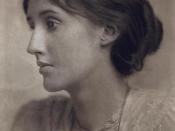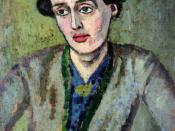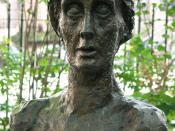Virginia Woolf's Mrs Dalloway is a modernist novel, which shows new techniques to express a different point of view with regard to the notion of time. It is not without importance to note that the novel has no chapter headings. Nevertheless it is immediately obvious that the interest of the novel is not only in the form but also in the content. The action takes place in a single day of June in 1923 and what is interesting in the structure of the book is that simultaneously with the story of this single day, time is constantly flowing from present to past or to future. These flashbacks constitute the major psychological moments of the novel, most of them being represented by the stream of consciousness technique. This essay will explain how this flow of consciousness is interrupted by a chronological time represented by the strike of clocks. In fact, Woolf introduces a contrast between internal and external time.
Moreover, the novel as a whole can also be considered as an alternate succession of two plots: the one of Clarissa and the one of Septimus. These two characters already show two different points of view over life and time: a sane one and an insane one. Furthermore, it may be demonstrated that many different relations to time can be reflected through the various characters of the novel.
Firstly, it shall be seen that internal time is a psychological and subjective time. It is measured by the relative emotional intensity of a moment. This time is fluid, elastic and mobile. Woolf uses the flashback technique, which enables the reader to go from present to past or to future without having a chronological order. In addition, she essentially points out this distortion of time by two means: first the traditional dialogues between...


